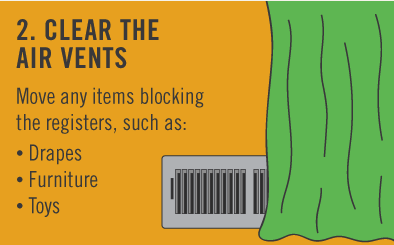Heatpump Vs Heating System - Which Is The Better Home Heating Option For Your Home?
Heatpump Vs Heating System - Which Is The Better Home Heating Option For Your Home?
Blog Article
Read More On this page By-Hjelm Matthiesen
Several homeowners are familiar with heaters, which heat homes with oil or natural gas and press hot air via ductwork. They are fairly affordable and can supply reputable heating also during a winter season power failure.
Nevertheless, they utilize nonrenewable fuel sources and create carbon monoxide and various other air pollution. They likewise aren't as energy-efficient as a high-efficiency heatpump.
Cost
Usually, heat pumps are a lot more budget friendly to run than heating systems. They normally utilize electrical energy and refrigerant to remove warmth from exterior air, and after that move it right into your home. https://www.motorbiscuit.com/5-tiktok-hacks-make-car-smell-incredible/ can capitalize on less expensive power rates throughout off-peak hours to further decrease your heating prices.
Unlike heatpump, gas or wood-burning heating systems use combustion to generate warm, emitting flue gases right into the environment that can be dangerous to your health and wellness. These heaters are likewise much less energy-efficient than heat pumps, and their greater operating costs can add up over time.
Furnaces are more complicated than heat pumps and call for regular upkeep to make sure the proper function of all parts. Despite this, they often tend to last longer than heatpump with a normal life expectancy of 20 years or even more. Nevertheless, you'll need to consider the cost of gas, gas oil or timber and the additional tools required for installation and operation such as air ducts and ventilation systems.
Energy Effectiveness
Heat pumps have a greater power efficiency rating than heating systems. These systems make use of electrical power to feed on warmth from the air, even in freezing temperature levels. They can additionally eliminate excess heat from the home throughout warmer months and reuse it to cool the system. Service provider experts can aid you determine the very best version for your online on environment and source power prices.
Furnaces melt fuel oil, gas, gas or other kinds of nonrenewable fuel source to warm the air in the home. This air is after that dispersed through ductwork making use of a large follower. Heaters produce greenhouse gases and call for normal maintenance and tools upgrades to ensure risk-free operation.
The biggest advantage of a heating system is that it can be operated even in severe winter season conditions since it does not depend on outside temperatures to heat the air. Furnaces additionally have a longer life expectancy than heatpump and generally last 15 years. They can likewise be paired with double fuel alternatives, which select one of the most reliable heating choice based on the weather.
Climate
Heat pumps work well in modest climates and utilize less resource power than heating systems. Nevertheless, if your region is exceptionally chilly, you may need to buy a typical gas furnace rather.
Heating systems provide warm, comfy heat and commonly offer rapid heating to increase interior temperatures. These systems can be used with a selection of fuel types, consisting of gas, lp, oil or power.
They consume much more energy than heat pumps-- approximately 3x as much-- and need ductwork that's costly to mount or retrofit. They're additionally a lot more expensive to keep, as they can trigger air top quality issues and produce greenhouse gas exhausts.
If you're dedicated to lowering your carbon impact, a heat pump is an excellent selection for your home. They have less greenhouse gas emissions than heaters, specifically if you choose a power STAR ® heatpump. Your neighborhood Provider expert can describe the differences in between these 2 heating unit and help you make the best decision for your distinct needs.
Personal Preferences
Furnaces can be really power effective when powered by gas, lp or oil, yet they aren't as energy efficient as heat pumps in frigid environments. They can also be a lot more costly to install, calling for gas lines and air flow systems.
However, heaters often tend to need much less maintenance, which can result in lower continuous prices. They create less greenhouse gases and are more trustworthy than heat pumps throughout extreme weather condition.
Electric heat pumps are extra versatile in creating indoor convenience because they can likewise work as air conditioning unit throughout warmer months. They can be more convenient to keep, needing just normal air filter adjustments and occasional vacuuming.
If you like the benefit of a solitary system that does it all, think about a hybrid heating remedy that pairs a heating system with an electric heat pump. These systems can automatically switch over between both home heating options based on your home's needs and temperature problems, optimizing efficiency and financial savings.